Downloaded from www.mymenopausecentre.com
Direct URL: https://www.mymenopausecentre.com/symptoms/lack-of-motivation/
Menopause and lack of motivation
Many women report a loss of energy and negative thinking. It's common to feel this way and other symptoms change the way your body behaves.
Explore
Book an appointment
The highly experienced doctors and nurses in our menopause clinic are here to help you. Appointments from £190.
Book An AppointmentIf you would like to learn more about the impact of your symptom(s) complete our free online menopause questionnaire here.
What is menopause-related lack of motivation?
Have you found yourself increasingly putting off doing things? Perhaps you catch yourself wandering around aimlessly when you know you have things to do? Menopause could be behind it.
Lack of motivation in the menopause can leave you feeling that you can’t be bothered to do the things you used to. You might feel like staying in bed or watching TV instead of getting out and about. Work – or any activity – can feel like a huge effort. In short, you feel you’ve lost your mojo.
So many menopause symptoms end with lack of motivation and low self-esteem. They include anxiety, mood swings and depression, brain fog, memory issues and fatigue. Physical symptoms of the menopause like hot flushes, night sweats and joint pains can also affect motivation.
These symptoms can lead to you stopping exercising, which in turn can lead to lower energy levels, weight gain and a drop in overall feelings of wellbeing. You might stop seeing your friends, taking part in social activities, or putting yourself forward for tasks or promotion at work.
What causes a lack of motivation?
Like most of the symptoms of the menopause, loss of motivation may result from the reduction in oestrogen and possibly testosterone – loss of oestrogen is the cause of most psychological and physical symptoms.
Life events, family changes, relationships and work issues can also have an impact, and these can be either directly or indirectly related to the menopause.
How many women typically experience a lack of motivation?
While a lack of motivation is extremely common, it’s difficult to put an exact figure on it. However, a survey by the British Menopause Society has revealed that over 20% of the working women surveyed reported that the menopause had affected their confidence at work. In the same survey, around half the women reported that the menopause had had an impact on their home life and just over a third said it had affected their social life[1].
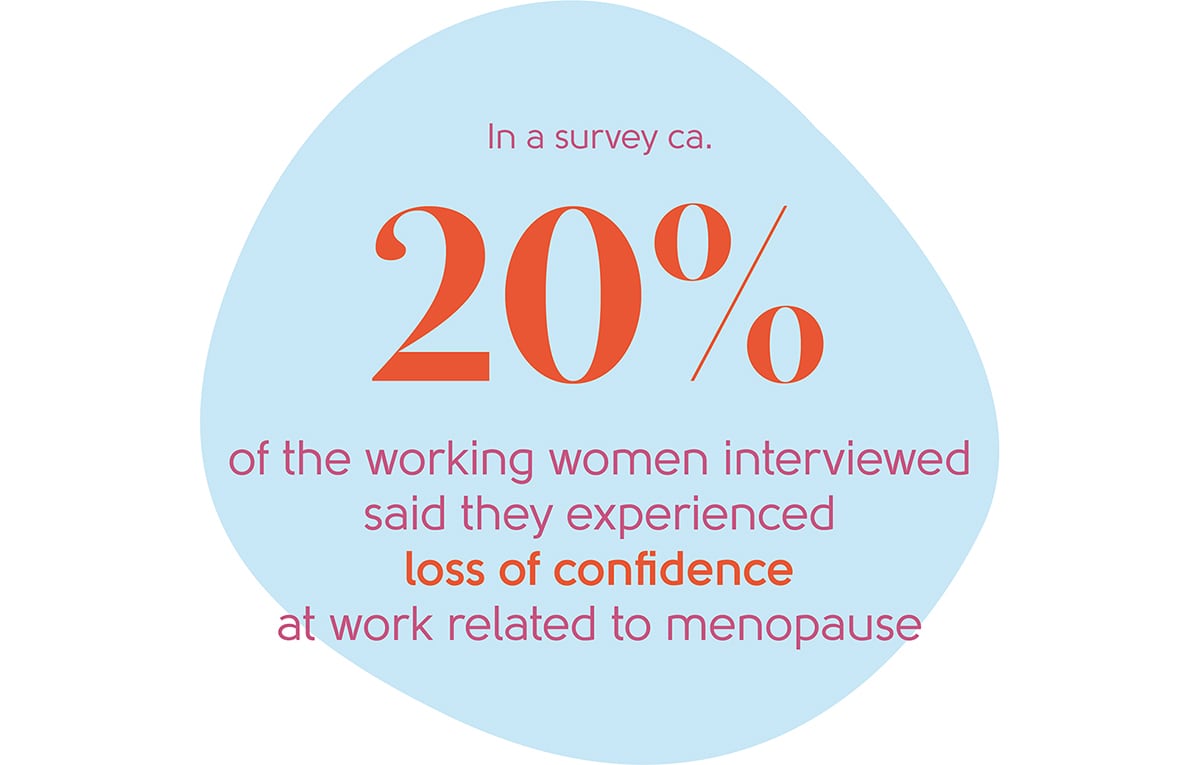
Is lack of motivation linked to any particular stage of the menopause?
Loss or lack of motivation can happen at any stage of the menopause.
How can lack of motivation be treated?
There are some questions you can ask yourself to help you better understand what might be behind your lack of motivation:
- Is it just a lack of motivation or do you have other symptoms as well?
- What is your mood like?
- Are you sleeping?
- Is there stress in your life?
- How are the physical symptoms of the menopause for you, such as hot flushes, bladder symptoms and vaginal dryness? How do they make you feel?
Please don’t hesitate to talk to a doctor about how you’re feeling, as there are so many different options available that can help you to feel better. Many women find that getting on top of other symptoms helps them to get their motivation back.
Hormone replacement therapy (HRT)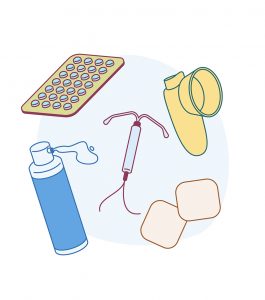
This can be an excellent way of dealing with your menopause symptoms. You may feel anxious about taking HRT because of everything you’ve read in the media, which tends to highlight the risks and ignore the benefits.
However, many menopausal women find that dealing with the symptoms can boost their day-to-day confidence, self-esteem and motivation, while reducing mood swings. You can find out more about HRT here.
Cognitive Behavioural Therapy (CBT)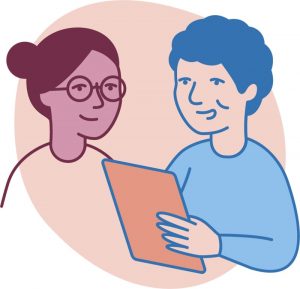
If you’re struggling to pinpoint why you’re feeling as you are, talking therapies can really help. Working with someone to look at the positive areas of your life, or to help rethink and reset unhelpful negative thinking, can help you start to get your confidence back. Cognitive behavioural therapy can challenge negative thinking and help you break out of the vicious circle.
Find out more about our CBT partners Sue Makin and Claire Lloyd.
Dealing with work issues
If it’s work that’s getting on top of you, there are a few things that you can do that could help you get your confidence back:
- Could you speak to someone at work about how you’re feeling – a colleague, your line manager or someone in the HR department? Many companies now have policies in place for the menopause. The Faculty of Occupational Health has good guidance that you could share, as does the Chartered Institute for Personnel and Development.
- Are there changes to your work environment that could make you feel more comfortable – like having water to hand, access to cooling fans or windows?
- Extra training or upskilling, coaching or counselling can be massively helpful to empower you to find the best way to thrive
Our partner, Cognomie, offers online mental fitness coaching to improve health, wellbeing and performance. Find out more here.
Relaxation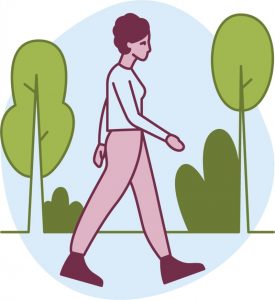
This is really important. Find a way to de-stress and get some headspace through yoga, meditation or just going for a long walk – whatever it is that you can find to help you switch off for a while. Build some time into your day to do it, and don’t feel guilty about it.
Switching off from time to time can relieve stress and reduce the stress hormones that can affect brain function.
Exercise
Exercise can be a brilliant way of improving your body image, increasing wellbeing, reducing weight gain and boosting your self-esteem and energy. Our friends at Her Spirit can help you find an activity that works for you and provide the motivation to do it.
These tips are not exhaustive and there will be ways of boosting your mojo and motivation that are more specific to you as an individual.
It’s not always easy to tackle this by yourself. Rest assured, we’re here to help – with medical advice, coaching, support in getting more active, or with therapy.
What next?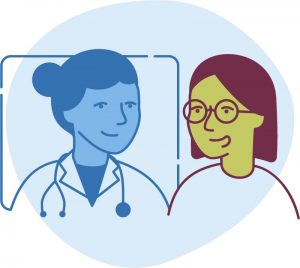
If you’re experiencing a lack of motivation, see your GP or book an appointment with our menopause clinic to discuss your symptoms in relation to the menopause.
If you think you may be experiencing symptoms of the menopause transition, you can learn more with our symptom checker or by taking our Menopause Questionnaire.
You can also find more information about the menopause transition at the British Menopause Society and the National Institute for Health and Care Excellence.
Authored by:
Dr Clare Spencer
Registered menopause specialist, GP and co-founder; see Dr Clare in person at The Spire Hospital, Leeds or online
Last updated:
07/04/2021
Book an appointment
The highly experienced doctors and nurses in our menopause clinic are here to help you. Appointments from £190.
Book An AppointmentLearn more
Join the pause. community
We’ve created pause. as a space for women to come together and share stories about their menopause experience, ask questions, and to find support and inspiration. We'll also share the latest news and updates on the menopause from our experts.
Want to be the first to hear our latest news? Join our pause. community today.
Share your email to receive the latest news, updates and information on new products and treatments from My Menopause Centre and our pause. community. You can unsubscribe at any time.
We're committed to protecting and respecting your privacy - see our Privacy Policy and Terms and Conditions

Book a consultation
Whether you want to discuss your symptoms, create a treatment plan that's right for you, understand some test results or have a check-up, the highly experienced doctors and nurses in our menopause clinic are here to help you.
Book nowReferences
-
Source: Currie H, Moger SJ. Menopause – Understanding the impact on women and their partners. Post Reproductive Health. 2019;25(4):183-190.
Contact My Menopause Centre
- General enquiries: hello@mymenopausecentre.com
- Book appointments online: Log into your account and go to 'My appointments'
- Book appointments by phone: 0333 444 1067
- Website: https://www.mymenopausecentre.com


















